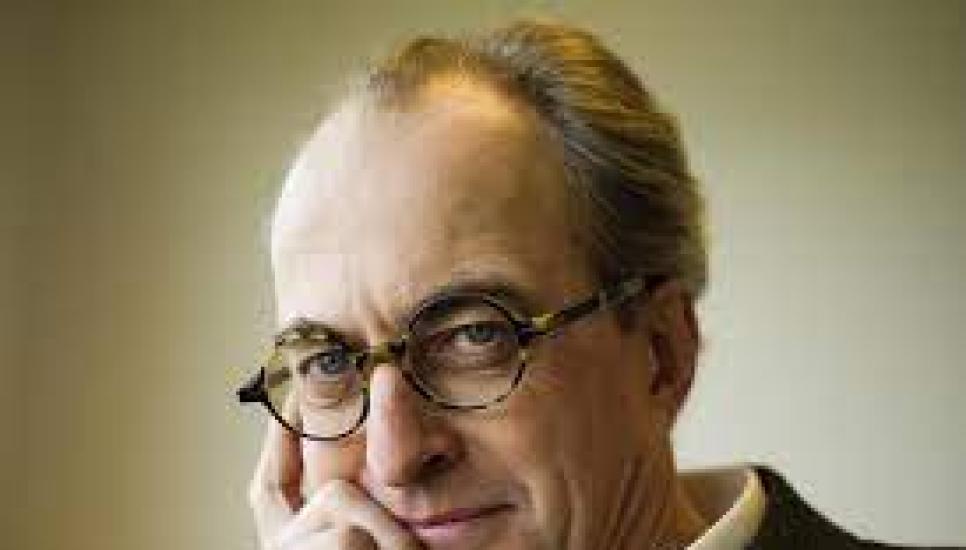Frederic de Mevius: Doing good and doing well down on the family farm

For more than 20 years, Frédéric de Mévius has run his family farm in Belgium based on organic and, more recently, biodynamic principles.
Having taken over the running of the land from his father in 1991, the sustainable practices he's employed have not only transformed this passion project into an acclaimed food and wine producer, but they’ve also influenced how he does things as co-founder and managing director of Planet First Partners, an investment platform addressing global challenges of sustainability, health and nutrition.
A ninth-generation member of the family that owned Interbrew before merging it to form the world’s biggest brewer, AB-InBev, de Mévius understands more than most the impact that thoughtful farming methods can have on the world.
Here, he talks exclusively to Campden FB about sustainable agriculture and how getting his hands dirty has influenced his investment strategies.
How did you become involved with the farm?
I took it over from my brothers and sisters. When my father was deciding which assets were going where, he asked us who would like to run the farm? I was interested and that’s how it all started.

What challenges have you faced moving to fully organic farming practices?
The farm is quite remote from the nearest town and we were confronted with the need to create our own water source. So, we dug a well and we had a lot of water, which was great. But when we analysed the water, we found it was full of nitrates, and therefore unfit for human consumption. I started seeing how conventional farming methods were affecting the environment, so I visited several scientists and discovered there is strong evidence that if you limit or avoid putting any chemical fertiliser in the soil, you will not get any chemicals leaching into the water table.
I started looking at what type of environment we wanted and what type of biodiversity can be produced with a different means of farming. As a result, we went from conventional to organic. After ten years, we managed to get very clear, pure water and we became very confident that this was the right direction.
We then went from organic to biodynamic and now I'm thinking of going even further towards fully regenerative, because one of the big components in farming is the humic content in the soil. There is a clear and established link between humus [dark organic matter in soil] and carbon. In addition, there is anecdotal evidence of a link between soil health and nutrients in the food produced. We've depleted the quality of soil by farming too extensively, even with organic farming, and I continue to look at ways to restore soil health by new farming projects.
One project replaces pesticides with pheromones. You may or may not know that every living organism emits pheromones because of anxiety, stress or mating desire. A few companies are creating synthetic pheromones which are being used to signal to insects that they should not reproduce and therefore you avoid the concentration of certain pests – it’s a very effective method used in many countries.
Even though I'm not a scientist, I have a very keen scientific interest.
How has owning the farm and turning it around with sustainable practices influenced your investment decisions through Planet First Partners?
Even though I'm not a scientist, I have a very keen scientific interest. The link between the environmental interest I developed on the farm and Planet First Partners is obvious.
My passion is to create a habitat for as much wildlife and organic life as possible on the farm. That passion has led me to read and to understand many biological, technical and scientific mechanisms behind soil management. So, I wanted to find a way to link my passion for the environment and skills in growing companies and helping founders to scale businesses which are improving health or the environment.
We have seen that there is a growing consumer demand for better-for-you, better-for-the-planet products. As I co-founded Planet First Partners with my partner Alexander De Wit, we developed a very systematic investment approach - sustainability comes first. Any business we invest in must be in line with Article 9 of the Sustainable Finance Disclosure Regulations (SFDR) of the European Union - for example, it must bring a substantial contribution to one of the EU Green Deal goals and that must be measurable audited by third parties.
So really having a hands-on experience has taught me that measuring success and improvement was super important in environmental matters. It's the rigour of being able to monitor every step that has had a big influence on my mindset when co-founding Planet First Partners.

The farm is a living and breathing case study for how this approach can make a difference and reap dividends. It must be quite a powerful tool for you...
Absolutely it is. There are several farming groups that are forming to change to good practice and finding new ways of measuring that change. I was recently talking to a regenerative farmer in Scotland, who is doing great things and we exchanged between ourselves the great potential for those opportunities. We talked about soil DNA testing to establish the concentration of micro-organisms, and how affordable this has become over the years.
You set a challenge to reduce pollution on your farm within ten years, what are the benefits for you in creating these milestones?
We did good in the sense that we improved the quality of farming and the products, and we’ve achieved a diversified and profitable operation - we also developed a vineyard, which produces one of the most sought-after quality wines in Belgium. It’s important to me to have a profitable operation which is doing good and doing well!
The next step will be to remain profitable putting regenerative principles in place, for which I'm setting some objectives for over the years.






